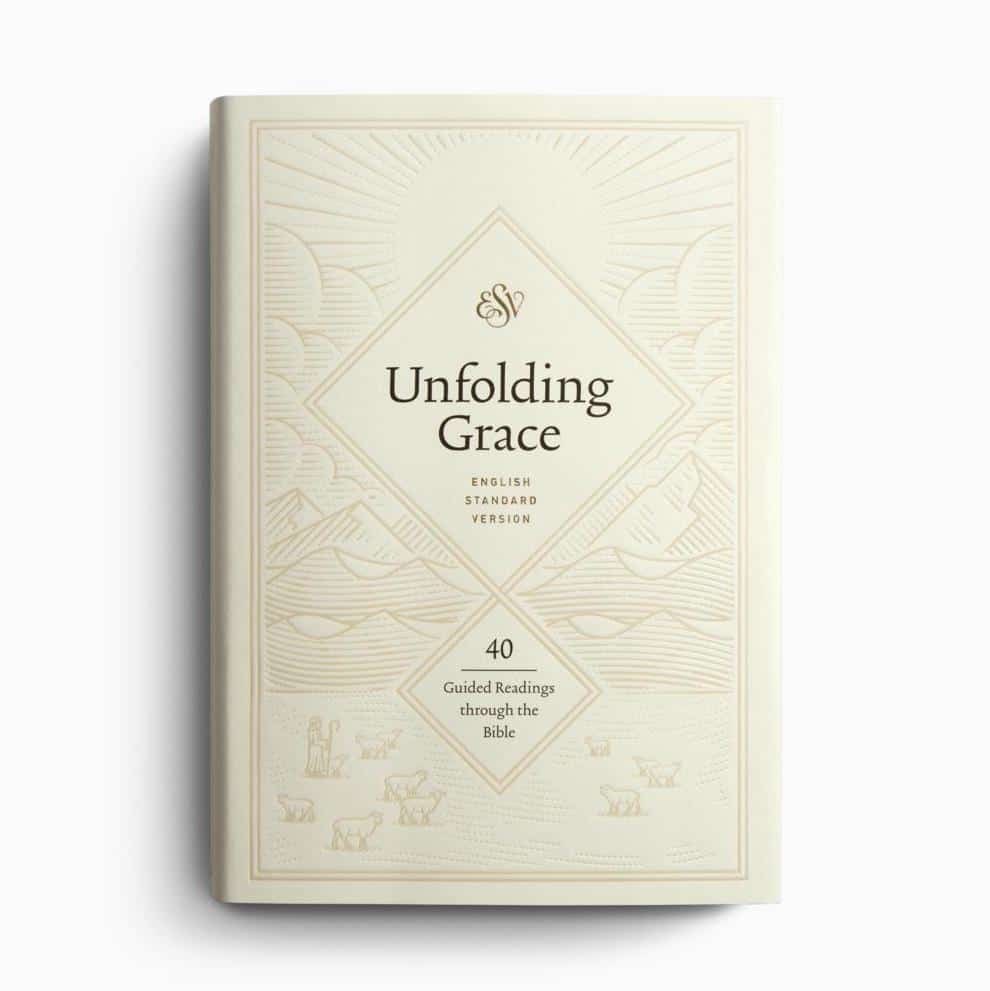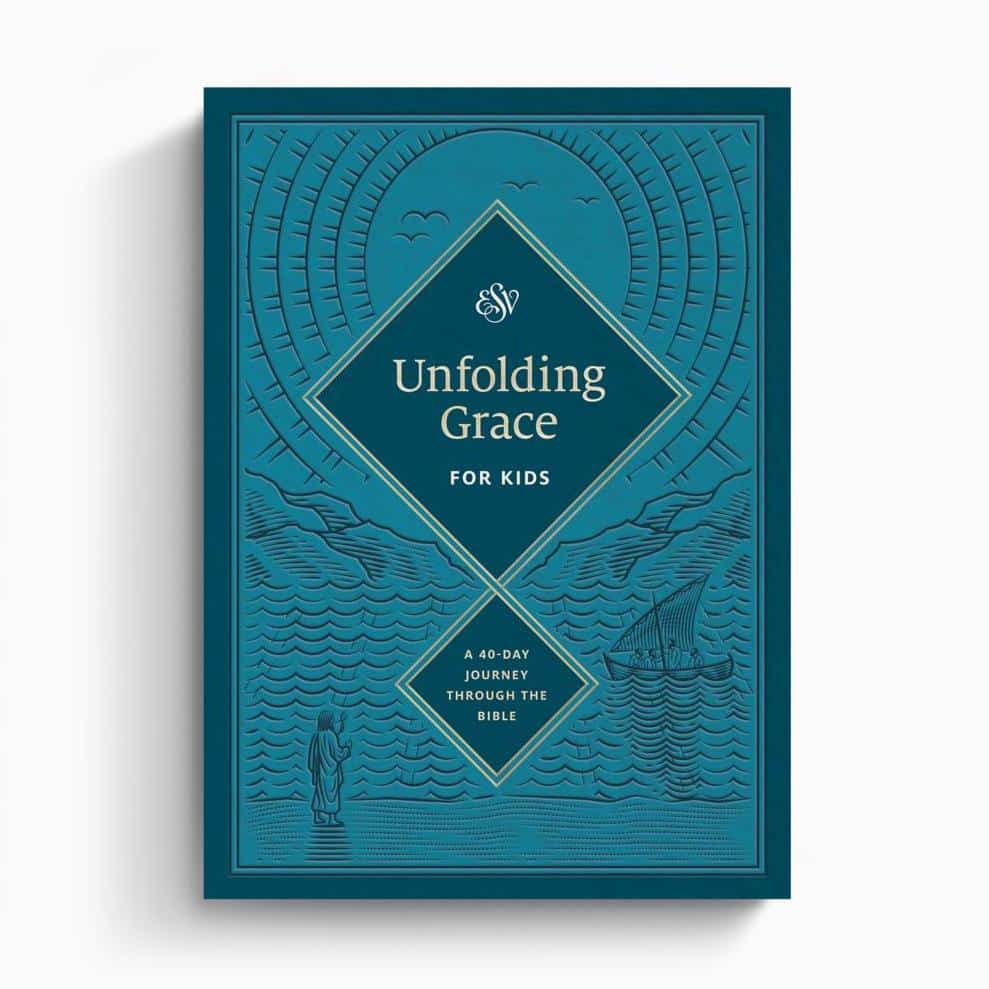LESSON TWENTY-THREE
Exiles Return and Rebuild the Temple
During Israel’s decades-long exile the prophet Jeremiah tells them to pray and seek the peace of their foreign city. They are to confess their sin, lament its consequences, and hope in God’s promises. The God who wounds is the God who heals, so they must put their hope in him.
After several decades God raises up a Persian king named Cyrus to defeat the Babylonians and send God’s people back home.
The few exiles that return are a new Israel of sorts. But they return as a broken people to a broken land with a broken-down temple. They begin to rebuild the temple, but it is amid opposition from non-Jewish people who have settled in the land. Many weep at the laying of the temple’s foundation because it is a mere shadow of Solomon’s glorious temple.
SCRIPTURE READING
Ezra 1-3
Reading Time: 8 Minutes
In the first year of Cyrus king of Persia, that the word of the Lord by the mouth of Jeremiah might be fulfilled, the Lord stirred up the spirit of Cyrus king of Persia, so that he made a proclamation throughout all his kingdom and also put it in writing:
“Thus says Cyrus king of Persia: The Lord, the God of heaven, has given me all the kingdoms of the earth, and he has charged me to build him a house at Jerusalem, which is in Judah. Whoever is among you of all his people, may his God be with him, and let him go up to Jerusalem, which is in Judah, and rebuild the house of the Lord, the God of Israel—he is the God who is in Jerusalem. And let each survivor, in whatever place he sojourns, be assisted by the men of his place with silver and gold, with goods and with beasts, besides freewill offerings for the house of God that is in Jerusalem.”
Then rose up the heads of the fathers’ houses of Judah and Benjamin, and the priests and the Levites, everyone whose spirit God had stirred to go up to rebuild the house of the Lord that is in Jerusalem. And all who were about them aided them with vessels of silver, with gold, with goods, with beasts, and with costly wares, besides all that was freely offered. Cyrus the king also brought out the vessels of the house of the Lord that Nebuchadnezzar had carried away from Jerusalem and placed in the house of his gods. Cyrus king of Persia brought these out in the charge of Mithredath the treasurer, who counted them out to Sheshbazzar the prince of Judah. And this was the number of them: 30 basins of gold, 1,000 basins of silver, 29 censers, 30 bowls of gold, 410 bowls of silver, and 1,000 other vessels; all the vessels of gold and of silver were 5,400. All these did Sheshbazzar bring up, when the exiles were brought up from Babylonia to Jerusalem.
Now these were the people of the province who came up out of the captivity of those exiles whom Nebuchadnezzar the king of Babylon had carried captive to Babylonia. They returned to Jerusalem and Judah, each to his own town. They came with Zerubbabel, Jeshua, Nehemiah, Seraiah, Reelaiah, Mordecai, Bilshan, Mispar, Bigvai, Rehum, and Baanah.
The number of the men of the people of Israel: the sons of Parosh, 2,172. The sons of Shephatiah, 372. The sons of Arah, 775. The sons of Pahath-moab, namely the sons of Jeshua and Joab, 2,812. The sons of Elam, 1,254. The sons of Zattu, 945. The sons of Zaccai, 760. The sons of Bani, 642. The sons of Bebai, 623. The sons of Azgad, 1,222. The sons of Adonikam, 666. The sons of Bigvai, 2,056. The sons of Adin, 454. The sons of Ater, namely of Hezekiah, 98. The sons of Bezai, 323. The sons of Jorah, 112. The sons of Hashum, 223. The sons of Gibbar, 95. The sons of Bethlehem, 123. The men of Netophah, 56. The men of Anathoth, 128. The sons of Azmaveth, 42. The sons of Kiriath-arim, Chephirah, and Beeroth, 743. The sons of Ramah and Geba, 621. The men of Michmas, 122. The men of Bethel and Ai, 223. The sons of Nebo, 52. The sons of Magbish, 156. The sons of the other Elam, 1,254. The sons of Harim, 320. The sons of Lod, Hadid, and Ono, 725. The sons of Jericho, 345. The sons of Senaah, 3,630.
The priests: the sons of Jedaiah, of the house of Jeshua, 973. The sons of Immer, 1,052. The sons of Pashhur, 1,247. The sons of Harim, 1,017.
The Levites: the sons of Jeshua and Kadmiel, of the sons of Hodaviah, 74. The singers: the sons of Asaph, 128. The sons of the gatekeepers: the sons of Shallum, the sons of Ater, the sons of Talmon, the sons of Akkub, the sons of Hatita, and the sons of Shobai, in all 139.
The temple servants: the sons of Ziha, the sons of Hasupha, the sons of Tabbaoth, the sons of Keros, the sons of Siaha, the sons of Padon, the sons of Lebanah, the sons of Hagabah, the sons of Akkub, the sons of Hagab, the sons of Shamlai, the sons of Hanan, the sons of Giddel, the sons of Gahar, the sons of Reaiah, the sons of Rezin, the sons of Nekoda, the sons of Gazzam, the sons of Uzza, the sons of Paseah, the sons of Besai, the sons of Asnah, the sons of Meunim, the sons of Nephisim, the sons of Bakbuk, the sons of Hakupha, the sons of Harhur, the sons of Bazluth, the sons of Mehida, the sons of Harsha, the sons of Barkos, the sons of Sisera, the sons of Temah, the sons of Neziah, and the sons of Hatipha.
The sons of Solomon’s servants: the sons of Sotai, the sons of Hassophereth, the sons of Peruda, the sons of Jaalah, the sons of Darkon, the sons of Giddel, the sons of Shephatiah, the sons of Hattil, the sons of Pochereth-hazzebaim, and the sons of Ami.
All the temple servants and the sons of Solomon’s servants were 392.
The following were those who came up from Tel-melah, Tel-harsha, Cherub, Addan, and Immer, though they could not prove their fathers’ houses or their descent, whether they belonged to Israel: the sons of Delaiah, the sons of Tobiah, and the sons of Nekoda, 652. Also, of the sons of the priests: the sons of Habaiah, the sons of Hakkoz, and the sons of Barzillai (who had taken a wife from the daughters of Barzillai the Gileadite, and was called by their name). These sought their registration among those enrolled in the genealogies, but they were not found there, and so they were excluded from the priesthood as unclean. The governor told them that they were not to partake of the most holy food, until there should be a priest to consult Urim and Thummim.
The whole assembly together was 42,360, besides their male and female servants, of whom there were 7,337, and they had 200 male and female singers. Their horses were 736, their mules were 245, their camels were 435, and their donkeys were 6,720.
Some of the heads of families, when they came to the house of the Lord that is in Jerusalem, made freewill offerings for the house of God, to erect it on its site. According to their ability they gave to the treasury of the work 61,000 darics of gold, 5,000 minas of silver, and 100 priests’ garments.
Now the priests, the Levites, some of the people, the singers, the gatekeepers, and the temple servants lived in their towns, and all the rest of Israel in their towns.
When the seventh month came, and the children of Israel were in the towns, the people gathered as one man to Jerusalem. Then arose Jeshua the son of Jozadak, with his fellow priests, and Zerubbabel the son of Shealtiel with his kinsmen, and they built the altar of the God of Israel, to offer burnt offerings on it, as it is written in the Law of Moses the man of God. They set the altar in its place, for fear was on them because of the peoples of the lands, and they offered burnt offerings on it to the Lord, burnt offerings morning and evening. And they kept the Feast of Booths, as it is written, and offered the daily burnt offerings by number according to the rule, as each day required, and after that the regular burnt offerings, the offerings at the new moon and at all the appointed feasts of the Lord, and the offerings of everyone who made a freewill offering to the Lord. From the first day of the seventh month they began to offer burnt offerings to the Lord. But the foundation of the temple of the Lord was not yet laid. So they gave money to the masons and the carpenters, and food, drink, and oil to the Sidonians and the Tyrians to bring cedar trees from Lebanon to the sea, to Joppa, according to the grant that they had from Cyrus king of Persia.
Now in the second year after their coming to the house of God at Jerusalem, in the second month, Zerubbabel the son of Shealtiel and Jeshua the son of Jozadak made a beginning, together with the rest of their kinsmen, the priests and the Levites and all who had come to Jerusalem from the captivity. They appointed the Levites, from twenty years old and upward, to supervise the work of the house of the Lord. And Jeshua with his sons and his brothers, and Kadmiel and his sons, the sons of Judah, together supervised the workmen in the house of God, along with the sons of Henadad and the Levites, their sons and brothers.
And when the builders laid the foundation of the temple of the Lord, the priests in their vestments came forward with trumpets, and the Levites, the sons of Asaph, with cymbals, to praise the Lord, according to the directions of David king of Israel. And they sang responsively, praising and giving thanks to the Lord,
“For he is good, for his steadfast love endures forever toward Israel.”
And all the people shouted with a great shout when they praised the Lord, because the foundation of the house of the Lord was laid. But many of the priests and Levites and heads of fathers’ houses, old men who had seen the first house, wept with a loud voice when they saw the foundation of this house being laid, though many shouted aloud for joy, so that the people could not distinguish the sound of the joyful shout from the sound of the people’s weeping, for the people shouted with a great shout, and the sound was heard far away.
EZRA 1-3
Study Guide Questions
- Why is it so important for Israel to rebuild the temple (in light of what we know about the purposes of the tabernacle and the temple)?
- What does this section teach us about God’s faithfulness?
EZRA 3
Family Discussion Questions
- Why was the laying of the foundation of the temple a time of celebration?
- Why was this sad for the older people who remembered Solomon’s bigger temple?
- How does this story show God’s faithfulness to his people and his promises?
PART FOUR REVIEW
God’s Kingdom Declined and Partially Restored
God brings Israel to a high point during the reign of Solomon. He establishes Solomon’s reign, gives him unmatched wisdom, and draws the nations to his rule. But Solomon turns from the Lord, and the people of Israel continue their centuries-long pattern of idolatry and disobedience. The united kingdom of Israel splits into northern and southern kingdoms. God uses the Assyrians to judge and exile the northern kingdom of Israel. Later he uses the Babylonians to judge and exile the southern kingdom of Judah. As God promised through Moses long before, he would remove his blessings from Israel if they continued in rebellious unbelief. Israel is exiled from their good land just as Adam and Eve were exiled from Eden in the beginning.
But God continues to remain faithful to his covenant promises to Abraham and to Israel and to David—promises that will lead ultimately to the restoration of God’s presence and blessing to all nations. He raises up the Persian ruler Cyrus to conquer Babylon and send many Israelites back to their land. These Israelites raise a new temple and rebuild Jerusalem’s walls. It is a day of small things—it certainly is not the full and glorious restored kingdom God promised through the prophets—but the Lord is blessing them. They now must trust him for a coming day of greater blessing, a day in which he will send his true King to restore Israel and send his blessings to the nations.
LESSON TWENTY-THREE
Exiles Return and Rebuild the Temple
Israel was in exile in Babylon, away from its land, for about seventy years. After several decades God raised up a Persian king named Cyrus to defeat the Babylonians and send God’s people back home.
The small number of Israelites who returned to the land was like a new Israel. But these exiles returned as a broken people to a broken land with a broken-down temple. In this next reading we see them begin to rebuild the temple. However, we also see many older Israelites weep when the temple is completed. They weep because this temple is not even close to the beauty of the previous one. They are back in the land, but they are still discouraged.
SCRIPTURE READING
Ezra 3:1-13
Reading Time: 3 Minutes
When the seventh month came, and the children of Israel were in the towns, the people gathered as one man to Jerusalem. Then arose Jeshua the son of Jozadak, with his fellow priests, and Zerubbabel the son of Shealtiel with his kinsmen, and they built the altar of the God of Israel, to offer burnt offerings on it, as it is written in the Law of Moses the man of God. They set the altar in its place, for fear was on them because of the peoples of the lands, and they offered burnt offerings on it to the Lord, burnt offerings morning and evening. And they kept the Feast of Booths, as it is written, and offered the daily burnt offerings by number according to the rule, as each day required, and after that the regular burnt offerings, the offerings at the new moon and at all the appointed feasts of the Lord, and the offerings of everyone who made a freewill offering to the Lord. From the first day of the seventh month they began to offer burnt offerings to the Lord. But the foundation of the temple of the Lord was not yet laid. So they gave money to the masons and the carpenters, and food, drink, and oil to the Sidonians and the Tyrians to bring cedar trees from Lebanon to the sea, to Joppa, according to the grant that they had from Cyrus king of Persia.
Now in the second year after their coming to the house of God at Jerusalem, in the second month, Zerubbabel the son of Shealtiel and Jeshua the son of Jozadak made a beginning, together with the rest of their kinsmen, the priests and the Levites and all who had come to Jerusalem from the captivity. They appointed the Levites, from twenty years old and upward, to supervise the work of the house of the Lord. And Jeshua with his sons and his brothers, and Kadmiel and his sons, the sons of Judah, together supervised the workmen in the house of God, along with the sons of Henadad and the Levites, their sons and brothers.
And when the builders laid the foundation of the temple of the Lord, the priests in their vestments came forward with trumpets, and the Levites, the sons of Asaph, with cymbals, to praise the Lord, according to the directions of David king of Israel. And they sang responsively, praising and giving thanks to the Lord,
“For he is good, for his steadfast love endures forever toward Israel.”
And all the people shouted with a great shout when they praised the Lord, because the foundation of the house of the Lord was laid. But many of the priests and Levites and heads of fathers’ houses, old men who had seen the first house, wept with a loud voice when they saw the foundation of this house being laid, though many shouted aloud for joy, so that the people could not distinguish the sound of the joyful shout from the sound of the people’s weeping, for the people shouted with a great shout, and the sound was heard far away.
SERMON SERIES
Finding Our Purpose in God’s Plan
These six messages belong to the Unfolding Grace: Finding Our Purpose in God’s Plan sermon series that author and pastor Drew Hunter preached at his home church. Through these six messages, he tells us the story of the Bible—a story that reveals the grace of God.
BUY THE BOOK
Book Series
The content you enjoy in this Unfolding Grace Reading Plan comes from the Unfolding Grace book series by Pastor Drew Hunter, published by Crossway Publishers. We encourage you to purchase a physical copy of Unfolding Grace to use individually, with your family, or as a small group.








